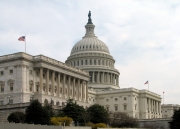Posted on July 12, 2013
Source: AIDS United


The Senate FY ‘14 Labor-HHS bill calls for $164.3 billion in discretionary budget authority for the departments. This would be a $7.8 billion increase from the fiscal 2013 enacted level of $156.5 billion, and $42.5 million more than the $121.8 billion House appropriators have allocated for their entire FY ’14 bill. The House appropriations subcommittee has not released its Labor-HHS bill yet, however.
The Senate bill reflects strong support for domestic HIV programs even in a time of overall budgetary cutbacks. Overall funding for the Ryan White Program would be increased over the amount appropriated for the current FY ’13, including a $47 million increase for ADAP. The bill also would provide funding for the Department of Health and Human Services (HHS) to implement the Affordable Care Act (ACA), including $5.2 billion for Program Management at the Centers for Medicare and Medicaid Services (CMS). CMS is playing a significant role in ACA implementation. The Prevention and Public Health Fund would be funded at $1 billion under the Labor-HHS bill.
All the Senators who spoke at the Subcommittee markup were extremely complimentary and bipartisan. Even though Ranking Member Jerry Moran (R-KS) voted against the bill he thought the process working with Sen. Harkin was a good one. He voted against the bill since it increases funding for the ACA, which he believes is an entitlement the country cannot afford.
As encouraging as the Senate’s Labor-HHS funding amounts are, a very important caveat needs to be made. The total Senate FY ’14 budget and appropriations process, including the Labor-HHS bill, assumes that the automatic spending cuts known as sequestration will be replaced or repealed. Across-the-board sequester spending cuts of about 5% went into effect on March 1. Under the provisions of the Budget Control Act (BCA), an additional sequester of about $109.3 billion will be implemented in FY ’14 and each fiscal year through 2021. Spending cuts of this magnitude will have a devastating impact on domestic programs, including HIV-related programs. We cannot just applaud the Senate’s numbers; we must see them as an opportunity to remind Congress Members of the need to achieve a balanced plan to replace sequestration. We will only be able to avoid drastic spending cuts if the Republicans and Democrats in the Congress and the Administration come to address our fiscal issues.